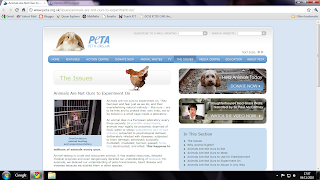These are just a few ways to raise awareness in animal cruelty:-
1) Start an Animal Appreciation Club. Ask your teacher or principal if you can start an animal awareness club at your school. Have a weekly or bi-weekly meeting to discuss animal issues and invite people from your community to speak. For example, invite someone from your local animal rescue to speak about adoption.
2) Organize an Event in Your Local Community Center. Invite a speaker, for example, someone who went to New Orleans to rescue animals from Katrina, to speak to your community. You can make the event free, or ask for a donation to the animal organization of your choice! Encourage all the people who come to visit AnimalPlanet.com and sign up to promise to help animals.
3) Plan a Hero Night. Invite local volunteers to a community event and honor their efforts – while giving the other attendees the opportunity to learn how they can get involved!
4) Organize a Dog Park Clean Up Day. Dog parks can get run down very quickly. Talk to other dog park users and organize a day to spiff up the playground.
5) Visit a Nature Center to Find Out About Local Wildlife. Your local nature center can give you lots of information about the types of wildlife in your geographic area. Bring your friends, family, classmates and learn something from the experts.
6) Invite a Vet to Career Day at Your School. Next time your school hosts a Career Day, invite your favorite vet to come and talk about becoming a doctor for animals.
7) Start a Neighborhood Watch Program. The Humane Society of the United States (HSUS) has some great ideas for preventing animal abuse with a Neighborhood Watch Program.
8) Teach Your Community About Making a Difference. The American Humane Association (AHA) has ten easy ideas for being kind to animals. Share this list will all your friends and family!
9) Teach Your Community About Preventing Animal Cruelty. You and your neighbors can make a difference by learning how to prevent animal cruelty. Anne Marie Lucus from Animal Precinct shared some easy ways to prevent animal cruelty with the America Society for the Prevention of Cruelty to Animals (ASPCA). Read the list and share it with all your friends and family.
10) Become a Mentor. If you are a veterinarian you can become a mentor and share your animal awareness with new vets. The American Veterinary Medical Association (AVMA) has a mentoring program.
11) Organize a Wildlife Expedition. Nothing beats hands-on learning through a once-in-a-lifetime opportunity to take time away from your busy schedule and dedicate a vacation to helping animals. Organize a trip through your community, school or religious group. Earthwatch offers a variety of amazing expeditions all year round.
12) Have an Animal Birthday Party. If you would love to teach your friends and family about animals – why not use your birthday party! If you live in the area, you can go to the South Shore Natural Science Center and they will help you plan hikes, games and animal activities.
13) Teach Your Students about Wildlife. Why not build wildlife into your academic planning? The National Wildlife Federation (NWF) has some wonderful lesson plans for using gardening to teach kids about life skills and animals!
14) Join WWF's Conservation Action Network, where you can speak out for wildlife and wild places around the globe.
15) Participate in Conscious Consumerism. Conservation is just about what you DO, it is about what you DO NOT do. Learn about how to make a stand by not buying products that endanger our species. Share these easy ideas from the Wildlife Warriors Worldwide with your friends and family!
16) Send the ROAR Promise Page to All Your Friends and Family. Encourage everyone you know to get out there and help animals!
17) Have Your Children and Students Read Humane Children's Books. You can read books like Black Beauty together and talk about the importance of kindness to animals.
18) Coordinate a Volunteer Event at Your Local Shelter. Wouldn't it be fun to get your community or co-workers involved in a little volunteer work at a local shelter? Many companies (including Animal Planet!) support taking a day off every once and awhile to work at a local shelter. Talk to your Human Resources department and your local shelter.
19) Start a Backyard Habitat Club. Local conservation can start in your backyard. Get your friends and neighbors together and share ideas for transforming your backyard into an oasis for animals.
20) Help People Find a Place to Volunteer. Print out the volunteer locations in your area and share them with friends, family, co-workers and fellow students! Post the volunteer locations in your inter-office mail, school paper or local paper. Make sure everyone who volunteers to help animals makes a promise here!
So many things you can do to create awareness! Right?
-Amal (written by Ayunie, but all the information here was given by her!)










